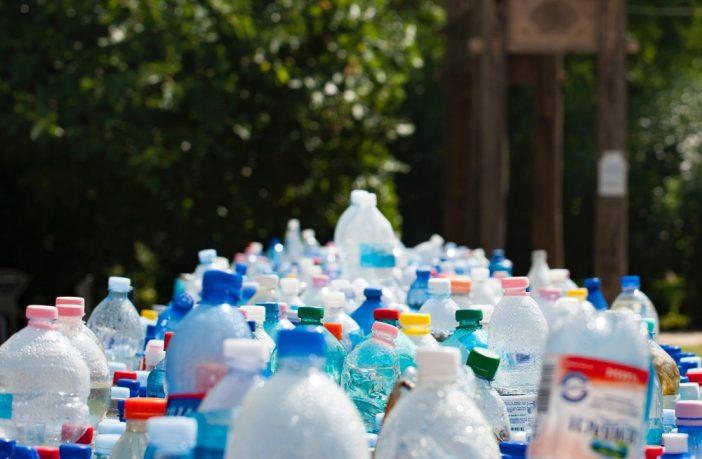- Recycling remains a low priority in South Africa.
- Yet the average South African, produces 0.5 to 2kg of waste per day, which amounts to two bins per week.
- The objectives of recycling are to save resources as well as reduce the environmental impact of waste by reducing the amount of waste disposed at landfills.
In recent years, there has been increasing media coverage about recycling. However, South Africans as a whole still do not enforce it in their offices, schools, churches or homes – with most still viewing it as something done in Europe; not a necessary “thing to do” for us, South Africans. Here are six good reasons why South Africans need to adopt, enforce and excel at recycling:
Recycling saves landfill space
Globally, nationally and locally governments are dealing with the dilemma of landfills fast reaching their maximum capacity. Once an existing landfill is full, new ones are set up at huge costs to taxpayers with increasing transport costs and at locations closer to citizens. This has significant problems for the future of waste management as it is very hard to find new spaces for landfills in the ever-growing urbanised world.
The average South African produces 0.5 to 2kg of waste per day, which amounts to two bins per week. Approximately 65% (38 million tonnes) of the waste in South Africa is recyclable and could be diverted from landfill. Given that recycling just one ton of paper saves three cubic meters of landfill space and every ton of plastic recycled saves 5.7m3 landfill space, the benefits of recycling have significant impacts on landfill spaces.
Recycling reduces greenhouse gas emissions
Landfills are the largest human-caused producers of methane, a significant greenhouse gas that is 20 times more potent in trapping heat in the atmosphere than carbon dioxide. Since methane has a lifespan of just 9 to 15 years, reducing methane emissions is thought to be an effective way of reducing climate warming in a relatively short period of time. Recycling just 1kg of polyethylene has been reported as reducing 1.5kgs of CO2 entering the atmosphere with 25 million metric tons of greenhouse gas emissions eliminated through recycling of more than 7 million tons of metals, states the Environmental Protection Agency.
Recycling spares our natural resources
Around 4 percent of world oil and gas production, non-renewable resources are used as feedstock for plastics and a further 3 –4% is expended to provide energy for their manufacture. Recycling 1kg of polyethylene saves approximately 2litres of crude oil while recycling half the world’s paper prevents the harvesting of 20 million acres (81,000 km²) of forest. Metal such as gold, zinc, and silver (among others) reserves are said to be depleting at significant rates and could be depleted by 2040. This will cause a significant problem for many industries such as the building and electronic ones, which heavily utilise these metals in their products.
Recycling saves energy
When we send our recyclables to landfills, raw materials must be obtained to replace them. This is done through energy-intensive processes. Recycling reduces the need for new materials, creating energy savings: unreleased energy from an average dustbin each year could power a television for 5,000 hours.
Recycling saves money
Diverting waste from landfills through recycling saves South African municipalities roughly R750 million per year, and we are only recycling 10% of our waste. This is extremely low in comparison to European countries which have reached recycling levels of 50%.
Increases in recycling rates are being seen because of the values that are attached to the recyclable products. The higher the value of the products, the more they are being recycled onsite and after source. Therefore, the cost of setting up a recycling business can be partly offset by the value of the recyclable products.
Recycling provides employment
The recycling industry makes a meaningful contribution to job creation and the GDP because it is increasingly labour-intensive. According to the Department of Environmental Affairs, the South African recycling economy provides income for about 84 000 individuals. Most of these people are in the informal sector and small- and medium- scale enterprises.
Waste pickers and “waste-preneurs”, making a living from collecting recyclables from the street, are financially benefiting from the recycling industry. In addition, their efforts play a critical role in reducing the environmental impacts of waste.
By investing in the recycling industry and creating more formal employment, unemployed individuals’ chances of finding employment is significantly increased. It has been estimated that the recycling industry can contribute seven times more jobs than landfill waste industry.
With the above facts in mind, it is a no-brainer to ensure that our municipalities, industries, companies, schools, and homes all recycle the waste they generate; and once the recycling mindset is there, you are likely to see an overall reduction in the waste generated in the first place. Recycling can no longer be seen as something that Europeans do – we as South Africans need to ensure we all embrace it, as it’s here to stay.
Authors: Berenice Westmore and Lara Vincent
Berenice is the CEO and Founder of Postwink, company specialising in the supply of recycling bins.











